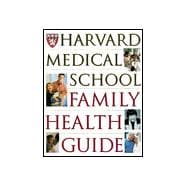- Make the most of the time you spend with your doctor.
- Decide when and if you need to see a doctor.
- Avoid dangerous drug interactions.
- Explore alternative treatments safely.
- Choose wisely among treatment options.
- Access emergency and other important information easily.
- Learn the most effective ways to prevent disease.
- Consult with the most renowned doctors in America, including Herbert Benson, T. Berry Brazelton, Robert Coles, and Richard Ferber.
- Receive the most current information from our Web site, which gives you free online updates.
Beth Israel Deaconess Medical Center • Brigham and Women's Hospital* • Cambridge Hospital • Center for Blood Research • Children's Hospital* • Dana Farber Cancer Institute • Harvard Pilgrim Health Care • Joslin Diabetes Center* • Judge Baker Children's Center • Massachusetts Eye and Ear Infirmary • Massachusetts General Hospital* • Massachusetts Mental Health Center • McLean Hospital • Mount Auburn Hospital • Schepens Eye Research Institute • Spaulding Rehabilitation Hospital • VA Boston Healthcare System (*CONSISTENTLY RANKED AMONG THE 10 BEST HEALTH INSTITUTIONS IN THE UNITED STATES) Throughout its history, Harvard's doctors have made important medical breakthroughs, including: the discovery of anesthesia • the birth of brain surgery • the first human organ transplantation (Nobel Prize) • the discovery of the polio virus (Nobel Prize) • the discovery of vitamin B12 as the cure for pernicious anemia (Nobel Prize) • the discovery of how the human eye sees (Nobel Prize) • the discovery of the aspirin-a-day prevention strategy for heart disease









